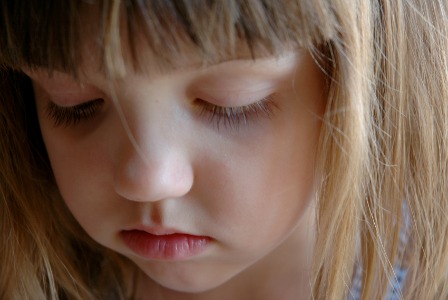Clik here to view.

April is National Child Abuse Prevention Month. To help all the children who are being abused in our communities, we need to take a closer look at the common indicators and signs of abuse and neglect.
Beyond bruises
Beyond obvious signs of physical abuse, you should be aware of other indicators that may signal the presence of child abuse or neglect.
Behavioral changes
Sudden changes in behavior or school performance may be signs of abuse or neglect. Behavior changes vary from being overly compliant to being completely withdrawn to acting unusually watchful or worried. Learning problems and difficulty focusing on schoolwork that cannot be attributed to other causes can also be signs of abuse and neglect.
Additionally, if a child suddenly wants to come early and stay late at school or extracurricular activities, creating reasons not to go home, it may be indicative of a problem. Of course, we must keep in mind a number of other things can cause changes in behavior, as well — from lack of sleep or poor diet and from bullying to learning issues.
Signs of physical abuse
We all know that accidents and falls happen, but unexplained bruises, broken bones, burns and other injuries, particularly after an absence from school, can be indicative of physical abuse. If the child seems frightened of the parent or shrinks when approached by adults, this can be a red flag. When a parent or caregiver gives conflicting or unconvincing explanations of a child's injury or refers to the child in an extremely negative manner, there may be a legitimate cause for concern.
Signs of neglect
Neglect may be unintentional, as in cases when a family doesn't have the money to feed the child, provide sufficient clothing or offer proper medical care. Neglect may also occur when a parent is abusing alcohol or drugs, or doesn't have the mental capacity to care for their children properly. Neglected children are frequently absent from school, often dirty and sometimes steal food and money. These kids are sometimes anti-social but also can be very emotionally needy and clingy.
Signs of emotional abuse or maltreatment
If a child shows extreme behaviors — overly compliant, demanding, passive or aggressive — he/she may be dealing with maltreatment by parents or other family members. If the parent often blames or berates the child, this could be an emotionally abusive situation, as well.
Signs of sexual abuse
Sudden changes in behavior — as well as unusual or sophisticated sexual knowledge — may be signs a child is being sexual abused by a parent, caregiver, older child or other adult. Developmental regression, repetitious behavior, change in sleeping habits, unfounded fears, unprovoked aggression and sexually acting out can also be signs that a young child has been the victim of sexual abuse. The abuser's behavior may also tip you off that something is wrong. The suspected abuser may try to humiliate or isolate the child, or he/she may act jealous and controlling.
How to talk to your kids about sexual abuse>>
How to report suspected child abuse or neglect
At a glance
Childhelp— a national organization that provides referral services, help for those in crisis and more
The Childhelp National Child Abuse Hotline — 1-800-4-A-CHILD
childwelfare.gov— more information about preventing and reporting child abuse and neglect
Deciding to report abuse or neglect can be a difficult decision for many people, but it shouldn't be. Making one phone call can save a child's life. It's not your job to investigate first — that's the job of child protective services and law enforcement. If you have good reason to suspect a child is being abused or neglected, contact your local CPS office or police station. Most states offer a toll-free hotline for reporting anonymously. If you are mistaken, then your report will be investigated and ruled out.
You can also get assistance from Childhelp, a national organization that provides referral services, help for those in crisis and more. The Childhelp National Child Abuse Hotline number is easy to remember: 1-800-4-A-CHILD . This hotline is open 24 hours a day and staffed with professional crisis counselors who can offer emergency assistance, social services referrals and other support resources. Also visit childwelfare.gov for more information about preventing and reporting child abuse and neglect, along with tips for strengthening families, promoting well-being and protecting kids.
More on violence and abuse
Summer activities: Is your child safe from predators?
At Seventeen, I learned the truth
When teen dating violence hits your family